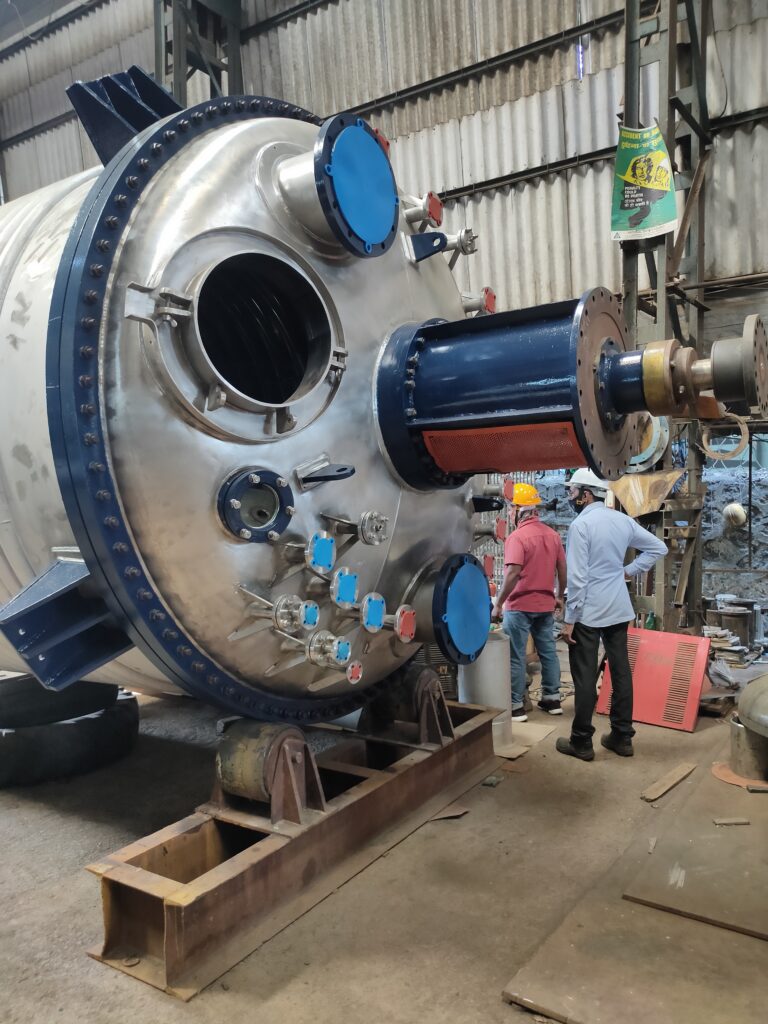Multi Column Distillation Plant Manufacturer – BE&C Equipments Trusted Experts in High-Purity Distillation Systems for Pharma, Biotech & Industrial Applications
Multi Column Distillation Plant Manufacturer – BE&C Equipment’s Trusted Experts in High-Purity Distillation Systems for Pharma, Biotech & Industrial Applications At BE&C Equipments, we specialize in designing, engineering, and manufacturing Multi Column Distillation Plants that meet the most stringent purity and regulatory standards. With over a decade of experience in high-efficiency distillation technology, our systems are trusted by leading pharmaceutical companies, biotech firms, chemical manufacturers, and food & beverage industries across India and around the globe. If your production process requires Water for Injection (WFI), ultra-pure solvents, or distilled chemicals, our advanced multi column distillation systems are designed to deliver uninterrupted, compliant, and energy-efficient performance 24/7. What is a Multi Column Distillation Plant? A Multi Column Distillation Plant is an advanced distillation system engineered to purify water or solvents through a series of interlinked distillation columns. This setup allows repeated purification (fractional distillation) across multiple stages, enhancing the purity, recovery rate, and thermal efficiency of the distillation process. At BE&C Equipments, our distillation plants are meticulously crafted using SS 316L stainless steel, automated PLC controls, and are fully compliant with GMP, FDA, USP, and WHO standards. Why Choose BE&C Equipments for Your Multi Column Distillation Plant? We aren’t just a manufacturer—we’re your technology partner. Our systems are engineered with precision, performance, and compliance in mind. Key Differentiators: GMP-Compliant Design Electropolished SS 316L Internals Automated PLC/HMI Controls Compact Footprint & Modular Construction Energy-Efficient Heat Recovery Systems CIP & SIP Integration IQ/OQ/PQ Documentation Support We offer full customization based on your flow rate requirements, from 50 LPH to 10,000+ LPH, with a choice of 3 to 7 distillation columns depending on purity needs. Working Principle of Our Multi Column Distillation Plant At BE&C Equipments, our multi column distillation system operates on the repeated fractional distillation and counter-current heat exchange principles. Each column purifies the vapor further than the last, ensuring maximum removal of contaminants, bacteria, pyrogens, and dissolved solids. Process Flow: Pre-treated Feed Water enters Column-1. Water is converted into vapor using clean steam. Vapor rises and condenses into the next column, leaving behind impurities. This cascade of evaporation-condensation continues through each column. The final product is ultra-pure distilled water or solvent, collected from the last stage. Non-condensable gases (NCGs) are vented for superior WFI compliance. With automated controls, our system maintains exact temperature, pressure, and flow balance to meet USP/BP/EP pharmacopeial standards. Applications of BE&C Multi Column Distillation Plants Our plants are widely used in industries where purity and precision are paramount. Industries We Serve: Pharmaceutical & API Manufacturing Injectable Drug Production Biotechnology & Vaccine Production Chemical Processing Food & Beverage Distillation Laboratory & Research Facilities Cosmetics & Personal Care From producing WFI (Water for Injection) to recovering valuable solvents, our systems deliver consistent, contaminant-free results every time. Salient Features of BE&C Multi Column Distillation Plants High-Purity Output: Achieves up to 99.999% purity. Energy-Efficient Design: Integrated heat exchangers reduce operational costs. Automatic PLC + HMI Control Panel: Fully automated for minimal manual intervention. Hygienic Construction: SS 316L electropolished to 0.4 Ra. Global Compliance: Meets GMP, FDA, USP, BP, WHO standards. Customization Options We offer tailored configurations to match your specific production volume, layout constraints, and regulatory goals. Custom Options Include: Number of Columns: 3 to 7 Flow Rates: 50 LPH – 10,000+ LPH Heat Source: Steam generator or boiler Storage & Distribution Loop Integration Clean-In-Place (CIP) & Sterilization-In-Place (SIP) Remote monitoring via SCADA Compliance & Validation Our systems include full validation and documentation support: IQ – Installation Qualification OQ – Operational Qualification PQ – Performance Qualification DQ – Design Qualification FAT/SAT – Factory & Site Acceptance Tests 21 CFR Part 11 compliance for electronic data integrity We support your QA team for USFDA, MHRA, EU-GMP, and WHO inspections. Advantages of BE&C Multi Column Distillation Plants Feature BE&C Multi Column Plant Standard Systems Purity Up to 99.999% (WFI grade) ~95–98% Efficiency High due to heat recovery Moderate Control Fully PLC-based Manual/semi-auto Maintenance Low High Scalability Modular design Fixed sizes Compliance Full validation support Partial or none Installation & After-Sales Support We provide end-to-end project execution—from layout design to installation, training, and AMC. Our Services Include: Site Inspection & Utility Assessment Custom Skid Design Piping & Instrumentation Diagram (P&ID) Commissioning & Trial Runs Operator Training Spare Parts Availability 24×7 Technical Support Why Multi Column Distillation is Better Than Other Methods Process Purity Energy Use Operation CIP/SIP GMP Compliant Multi Column Very High Low (with recovery) Continuous Yes Yes RO + UV Moderate Low Batch No Partially Single Effect Moderate High Batch No Limited SEO Keywords to Rank This Page Use these keywords in meta tags, alt text, titles, and headers: Multi column distillation plant manufacturer Water for Injection distillation plant WFI generation system India Pharmaceutical distillation system GMP compliant distillation plant Stainless steel multi column distiller Solvent recovery distillation equipment High purity water system for pharma Best distillation plant in India BE&C Equipments distillation systems Frequently Asked Questions (FAQs) Q1. What capacity ranges do you offer? From 50 LPH to over 10,000 LPH, depending on project size. Q2. Can your system produce Water for Injection (WFI)? Yes. All our plants are designed to meet WFI standards. Q3. Is the system fully automatic? Yes. PLC-HMI automation is standard in all models. Q4. Do you provide support during audits? Absolutely. Full documentation and audit support provided. Q5. What industries do you serve? Pharma, biotech, food, chemical, cosmetics, and labs. Conclusion At BE&C Equipments, we understand that purity is not optional—it’s critical. Our Multi Column Distillation Plants are engineered for reliability, scalability, and 100% compliance. With a legacy of engineering excellence, we are proud to be a trusted partner to pharma and chemical leaders. Looking to install a GMP-compliant distillation solution? Contact Us: +91-9004641884 [email protected] www.bencl.com BE&C Equipments – Your Partner in Pure Distillation Technology.

